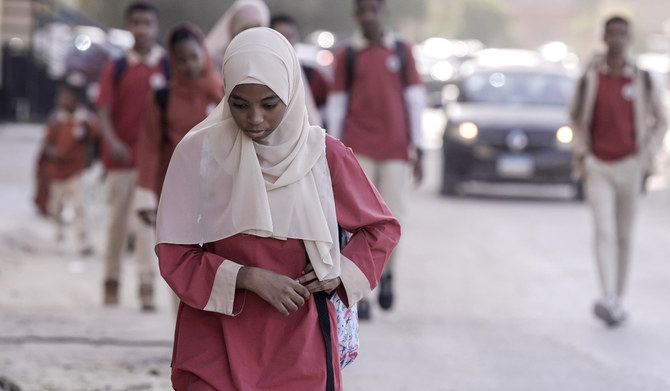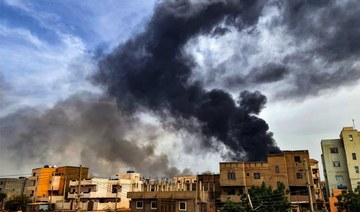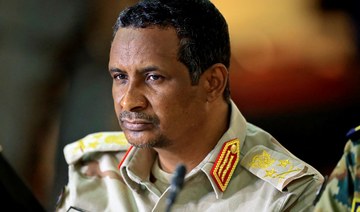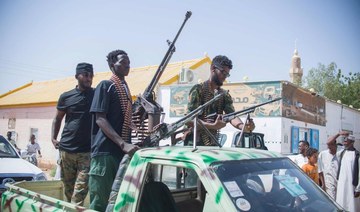DUBAI: Lawyer Omar Ushari still remembers the hope that gripped Khartoum after the uprising that overthrew President Omar Bashir in 2019. Now, after a year of war between rival generals, much of the Sudanese capital lies in ruins.
The 46-year-old, then detained for his activism, celebrated behind bars when Bashir was toppled in a palace coup.
In the heady days that followed, as the army promised a transition to elective civilian rule, Ushari was released and set to work on his dream project: a literary cafe near the banks of the Nile.
Named Rateena, his cafe swiftly became known as a safe haven for young activists eager to contribute to building a “better Sudan.”
But on April 15 last year, the Sudanese army and the paramilitary Rapid Support Forces went to war, and Ushari watched both his project and his dreams for the country “fade, bit by bit.”
BACKGROUND
Omar Bashir’s ouster in April 2019 ushered in a civilian-led transition that saw an outpouring of ‘hope, inspiration and vibrancy’ among young Sudanese, says Samah Salman, who worked in corporate venture capital then.
For months, he braved raging street battles to visit Rateena, “sit in the dark, take stock of what had been looted since my last visit, and reminisce.”
He did not understand how “the music that filled the space, the lectures and debates people shared, had been replaced with stray bullets strewn around me and the sound of tank fire outside.”
Now, as the war has entered its second year, with thousands dead and millions more driven from their homes, Ushari says he is “only one of the thousands of dreams shattered” — a microcosm of “a stolen revolution.”
Bashir’s ouster in April 2019 ushered in a civilian-led transition that saw an outpouring of “hope, inspiration and vibrancy” among young Sudanese, said Samah Salman, who worked in corporate venture capital then.
Startups were “springing up all across Sudan,” she said from the US, “all building extraordinary solutions to real needs ordinary Sudanese people were facing.”
Salman reviewed over 50 startups in telehealth, agritech, renewable energy, logistics, and fintech solutions, crediting the boom to “the energy of the revolution.”
According to Ushari, “hopes were high that Sudan was finally on the right path, out of the shadows and heading toward democracy, toward freedom.”
Like countless others, communications expert Raghdan Orsud, 36, wanted to play her part.
She co-founded Beam Reports to investigate disinformation in Sudan — “out of the belief in the role media can play in democratic transition,” she said from London.
But that transition ended in October 2021, two months after Beam Reports launched.
The same generals who would later go to war — army chief Gen. Abdel Fattah Al-Burhan and his then-deputy RSF commander Gen. Mohammed Hamdan Dagalo — ousted civilians from the transitional administration.
“Nothing was the same after the coup,” Ushari said.
“It was a painful time. They were killing protesters every week, but still, we had hope.”
Then, one fateful Saturday at the end of Ramadan, the people of Khartoum awoke to the sounds of air strikes and shelling as their worst fears came true: the erstwhile allies had turned their guns on each other.
Bodies began piling up on the streets as vicious urban warfare drove millions to flee.
Orsud had just bought studio-grade recording equipment, “still in their boxes,” when RSF paramilitaries seized and looted her offices.
Ushari was piecing together a life in Cairo when he received a video message showing a massive fire.
“That’s how I found out Rateena had burned down,” he said.
Countless Sudanese in the diaspora — who had spent decades saving up to build their Khartoum homes — have been forced to watch from afar as the RSF looted them.
“At some point, he was praying for an airstrike to hit the house,” pastry chef Shaimaa Adlan, 29, said in Cairo, referring to her father in Saudi Arabia.
“He would have rather seen it destroyed than know his life’s work was being used as a paramilitary base.”
Adlan had started a catering business in Khartoum before finding herself in Egypt — uprooted and jobless.
But barely a year later, she sprints through a bustling kitchen in Cairo, shouting orders to her staff and fussing over dishes.
Back home, Salman says the war has not crushed Sudanese entrepreneurialism, just redirected it.
She said tech entrepreneurs now crowdsource real-time safety updates instead of protest plans and optimize evacuation paths instead of delivery routes.
The same young people organizing demonstrations now coordinate aid, becoming what the UN calls “the front line” of humanitarian response.
And in displacement centers and the diaspora, the dream of a new Sudan has not been forgotten.
“No matter where we’ve been exiled or what remote Sudanese state we’ve ended up in, there’s still a spark of the revolution left in every heart,” Ushari said.
“Sudan is ours, it’s all of ours,” said Orsud, whose fact-checking team has resumed operations from Nairobi.
“What else would we do besides rebuild it, over and over?“























